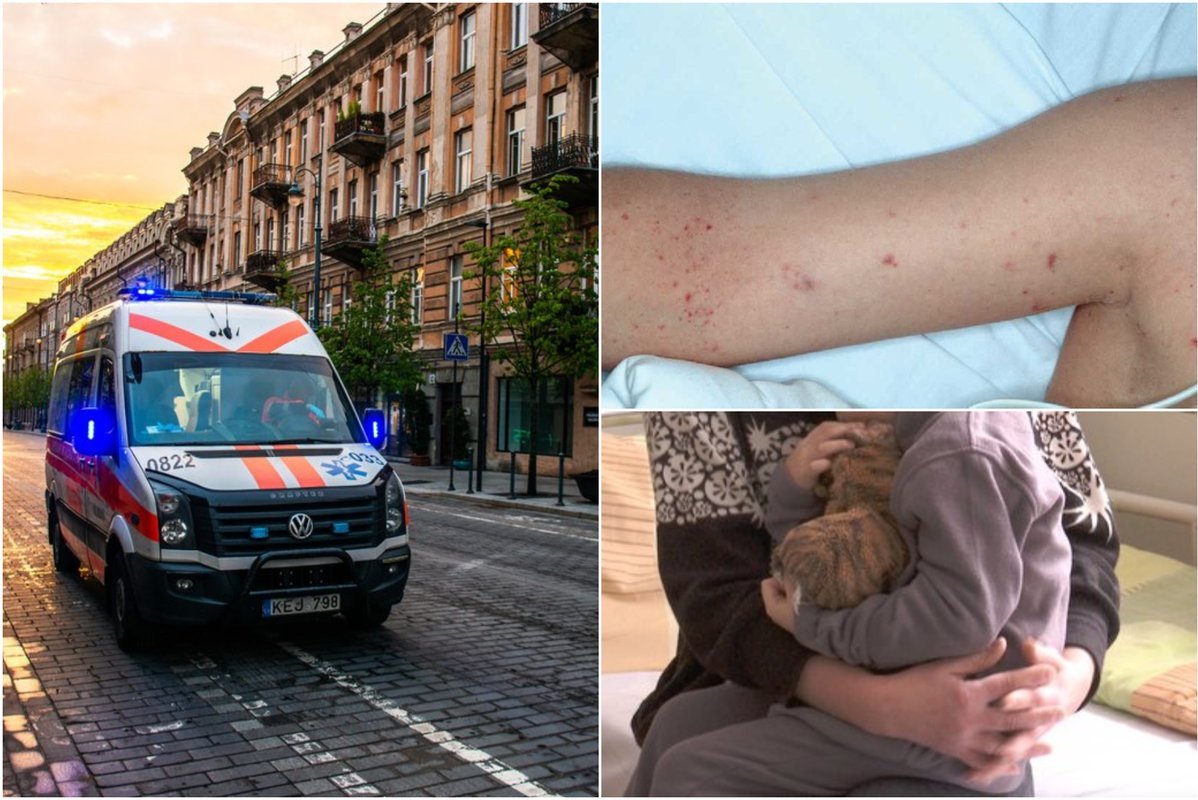
[ad_1]
Meningococcal infection is an acute bacterial infection spread by airborne droplets in close contact with a diseased or bacterial carrier.
It is caused by bacteria, also called meningococci, which are assigned to thirteen serological groups. The most common types are A, B, C, W135, and Y. In Europe and Lithuania, most meningococcal infections are caused by serogroup B bacteria.
Starts suddenly, reminiscent of a cold
According to Asta Skrickienė, a public health specialist at the Center for Infectious Diseases and AIDS, meningococcal infection is characterized by seasonality, so infection is more likely in the cold season: autumn, winter, spring, when there is a high incidence of influenza and acute upper respiratory infections.
“Meningococcal infection is an insidious disease, because at first there are no specific symptoms, it starts suddenly and reminds one of a cold or flu,” emphasizes A. Skrickienė.

Although meningococcal infection is very easy to confuse with other colds, the public health professional nevertheless points out that there are several symptoms that reveal this particular disease.
“The most common meningococcal infection are the following symptoms: fever, vomiting, drowsiness, lethargy, loss of consciousness, tension of the neck muscles, joint / muscle pain. Children are still characterized by constant crying, refusal to eat or drink, hemorrhagic rash, ”says A. Skrickienė. The specialist also points out that the rash occurs especially quickly:
“A rash of a hemorrhagic nature usually appears during the first day or in the first hours. The rash spreads from the thighs, buttocks, calves to the torso, armpits and face. “
Can be fatal
According to A. Skrickienė, this infection progresses very quickly and can lead to death within 24 hours.
“Up to 20 percent of all cases that recover after a meningococcal infection are permanent: kidney failure, brain damage, limb amputation, hearing loss and more,” he says.
Vaccines against meningococcal B infection were started in Lithuania in 2014. The number of people vaccinated against meningococcal infection type B is increasing every year.
For example, if five years ago only a little more than a thousand people had been vaccinated against meningococcal infection in Lithuania, in 2016 13,604 people were vaccinated, in 2017 – 21,323, in 2018 – 30,130, and in 2019 – even 77,933. people.
“To control the disease, you must vaccinate 90-95%. children, which would greatly reduce the risk of infection. However, there is still insufficient vaccination coverage against meningococcal type B infection in Lithuania, ”says the specialist.

Immediately notice symptoms
Vaccination is the most effective way to prevent meningococcal infection. The meningococcal infection vaccine is important because the incidence of meningococcal infection type B in Lithuania is one of the highest in Europe.
A. Skrickienė recalls that non-specific preventive measures should also be taken into account:
“You should wash your hands regularly. Follow cough and sneeze etiquette (cover nose and mouth with disposable wipes when coughing or sneezing, use – garbage). Ventilate and clean the room regularly. It is important to make sure that the sick person has as little contact as possible with healthy people. “
Antibiotics are used to treat meningococcal infection. In case of illness, it is recommended to contact a personal health care institution, where appropriate treatment will be prescribed.
„When the first hemorrhagic eruption is noticed, the person must be immediately transferred to the nearest intensive care unit ”, emphasizes the public health specialist.
[ad_2]